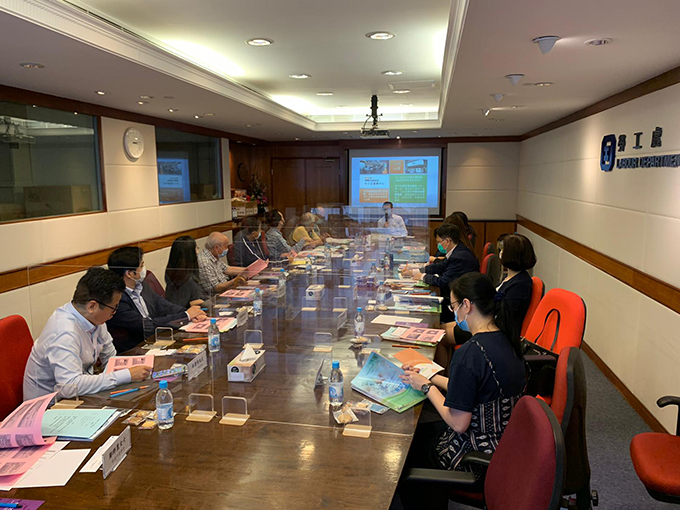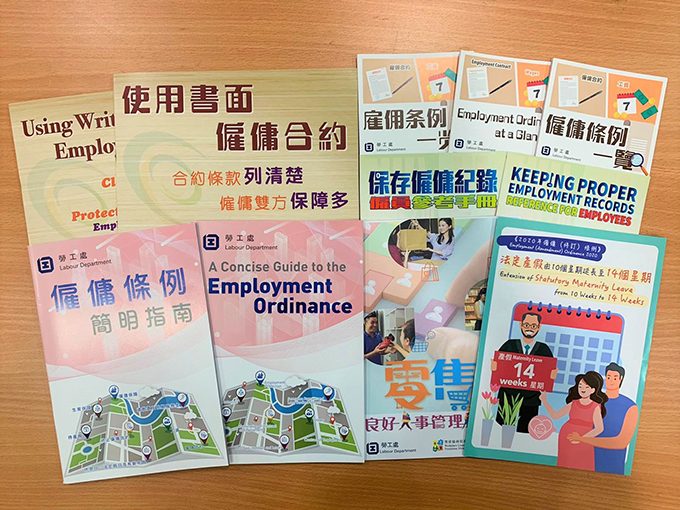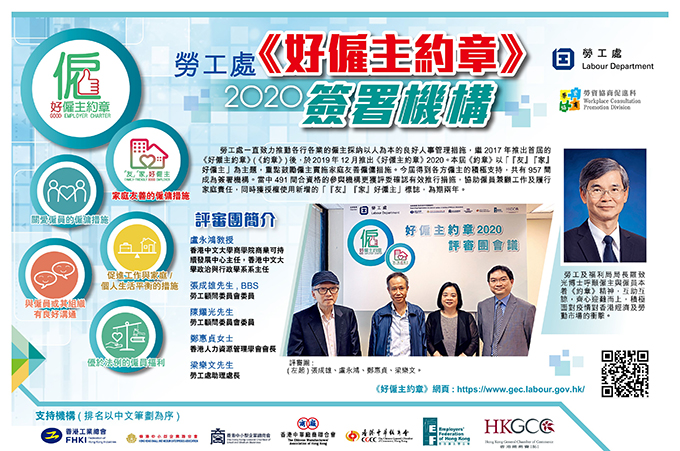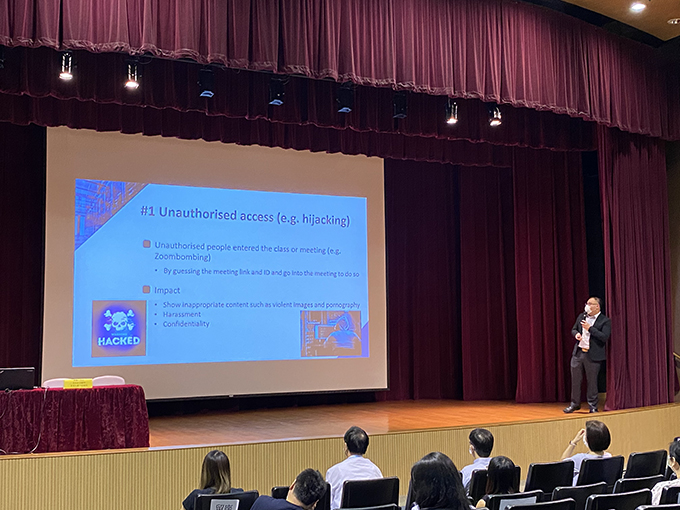Chapter 3 Labour Relations
The Programme of Labour Relations
www.labour.gov.hk/eng/labour/content.htm
3.1In Hong Kong, employer and employee relations are largely premised on the stipulations of various pieces of labour laws, and the terms and conditions of employment agreed and entered into between the two parties. Employers and employees are free to form trade unions and participate in union activities. The objective of the Labour Relations Programme is to maintain and promote harmonious labour relations in establishments outside the government sector. We achieve this by:
- giving advice on matters relating to conditions of employment, requirements of relevant labour legislation, and good human resource management practices;
- providing voluntary conciliation service to help employers and employees resolve their employment claims and labour disputes;
- promoting understanding of labour laws and encouraging good human resource management practices;
- adjudicating minor employment claims speedily through the Minor Employment Claims Adjudication Board (MECAB); and
- registering trade unions and their rules, organising courses and conducting visits to trade unions to bring about sound and responsible trade union administration.
3.2The principal legislation administered by this programme area includes the Employment Ordinance (EO), the Minimum Wage Ordinance (MWO), the Labour Relations Ordinance (LRO), the Minor Employment Claims Adjudication Board Ordinance (MECABO) and the Trade Unions Ordinance (TUO).
3.3The EO sets the basic standard on the conditions of employment that establishments outside the government sector have to meet. The MWO establishes a Statutory Minimum Wage regime. The procedures for settling labour disputes in establishments outside the government sector are provided for in the LRO. The MECABO establishes the machinery known as the MECAB to adjudicate minor employment claims when settlement cannot be achieved by conciliation. For the regulation of trade unions, the TUO provides a statutory framework for trade union registration and administration.
Our Work and Achievements in 2020
Key Indicators of Work
3.4Some key indicators of work of the Labour Relations Programme Area are contained in Figure 3.1.
Improvement to Employees’ Benefits
3.5In early 2020, the Chief Executive put forward a series of initiatives to further improve people’s livelihood, one of which was to increase progressively the number of statutory holidays from existing 12 days to 17 days so that it would be on a par with the number of general holidays other than Sundays. Taking into account the interests of employers and employees and the economic situation, the Government worked out a proposal to take forward the initiative and consulted the Labour Advisory Board twice in October and November 2020.
3.6The Employment (Amendment) Ordinance 2020 to increase statutory maternity leave from 10 weeks to 14 weeks took effect on 11 December. Employers may apply to the Government for full reimbursement of the additional maternity leave pay granted under the EO, subject to a cap of $80,000 per employee.
3.7The Labour Department (LD) continued to press ahead with the preparatory work for abolishing the use of employers’ mandatory contributions under the Mandatory Provident Fund System and comparable parts of similar retirement fund contributions to “offset” their employees’ severance payment and long service payment, including drafting bills and mapping out details for implementing the support measures.
Conciliation and Consultation Services
3.8Our conciliation and consultation services are conducive to maintaining harmonious industrial relations in Hong Kong. In 2020, we held 42 445 consultation meetings, and handled 10 991 claims and 85 labour disputes. Over 70% of cases with conciliation service rendered were settled in the year. (Figures 3.2, 3.3, 3.4, 3.5, 3.6 and 3.7)
Strengthening Tripartite Cooperation
3.9The LD runs nine industry-based tripartite committees, covering catering, cement and concrete, construction, hotel and tourism, logistics, printing, property management, retail and theatre industries, to promote tripartite dialogue and collaboration at the industry level with a view to fostering harmonious labour relations among employers, employees and the Government. These tripartite committees provide effective forums for members to discuss issues of common concern to their industries. Employment-related matters such as good human resource management, labour relations and employment situation of the industries as well as work arrangements in times of typhoons and rainstorms were deliberated in the year.

Industry-based tripartite committees run by the Labour Department providing effective platforms for members to discuss issues of common concern to their industries
Promotion of Good Employer-Employee Relations
3.10To enhance public understanding of the EO and to promote good human resource management culture, the LD organised various promotional activities and published free publications covering different themes for employers, employees, human resources professionals and the public. Relevant information was also disseminated through the LD’s homepage and the media. We also widely publicised messages about good human resource management as well as statutory employment rights and protection through the extensive network of employers’ associations and trade unions. Furthermore, to promote employee-oriented and progressive good human resource management practices, we organised the Good Employer Charter 2020 featuring the theme of “Family-friendly Good Employer”. Employers were encouraged to empathically consider the family role of their employees and suitably adopt family-friendly employment practices.

Free publications on different themes to enhance public understanding of the Employment Ordinance and promote good human resource management culture

Over 950 organisations enrolling in the Good Employer Charter 2020 as signatories and pledging to adopt good human resource management and family-friendly employment practices
3.11The LD organised a number of experience-sharing sessions and briefings and published newsletters regularly for members of 18 human resources managers’ clubs established in different trades. We also published newspaper articles and comic strips, and placed advertisements in public transport network and periodic journals of major employers’ associations and trade union federations to promote culture on good human resource management and encourage employers to jointly cultivate a family-friendly working environment. In the year, we produced a new set of TV and Radio Announcements in the Public Interest to promote the use of written employment contract. Besides, the newly revised booklets “Guidelines on What to do if Wage Reductions and Retrenchments are Unavoidable” and “Do’s and Don’ts – When Wage Reductions and Retrenchments are Unavoidable” were distributed through various channels with a view to enhancing the understanding of employers and employees on the issues to note and their rights and responsibilities when wage reductions or retrenchments were unavoidable.

Experience-sharing sessions and briefings for members of human resources managers’ clubs established in various trades
Adjudication of Minor Employment Claims
3.12The MECAB provides a speedy, informal and less costly adjudication service for members of the public. It is empowered to determine employment claims involving not more than 10 claimants for a sum not exceeding $8,000 per claimant.
3.13In 2020, the MECAB recorded 395 claims amounting to $1,761,491 and concluded 370 claims with a total award of $879,754.
Administration of Trade Unions
3.14The Registry of Trade Unions (RTU) is responsible for administering the TUO and the Trade Union Registration Regulations. Its major areas of work include registering trade unions and their rules, examining trade unions’ annual statements of accounts and any other returns required by the law to be furnished to the RTU, organising courses on trade union legislation and fundamental account management for trade unions, and conducting visits to trade unions to facilitate trade unions to manage union affairs in accordance with the law and their respective rules.
3.15In 2020, the RTU completed 496 registrations of new trade unions (comprising 495 trade unions and one trade union federation), making up a cumulative total of 1 422 trade unions (comprising 1 355 employee unions, 12 employers’ associations, 43 mixed organisations of employees and employers and 12 trade union federations) registered under the TUO. Please refer to the following webpage for the key trade union statistics: www.labour.gov.hk/eng/labour/content3.htm.
3.16In the year, the RTU examined 333 annual statements of accounts and conducted 115 visits to trade unions with a view to promoting sound and responsible trade union administration. To facilitate trade union officers in acquiring knowledge of union management, the RTU organised a course on trade union bookkeeping.